A day in the old Paris Bourse
 Eiffel Tower from my hotel room
Eiffel Tower from my hotel room 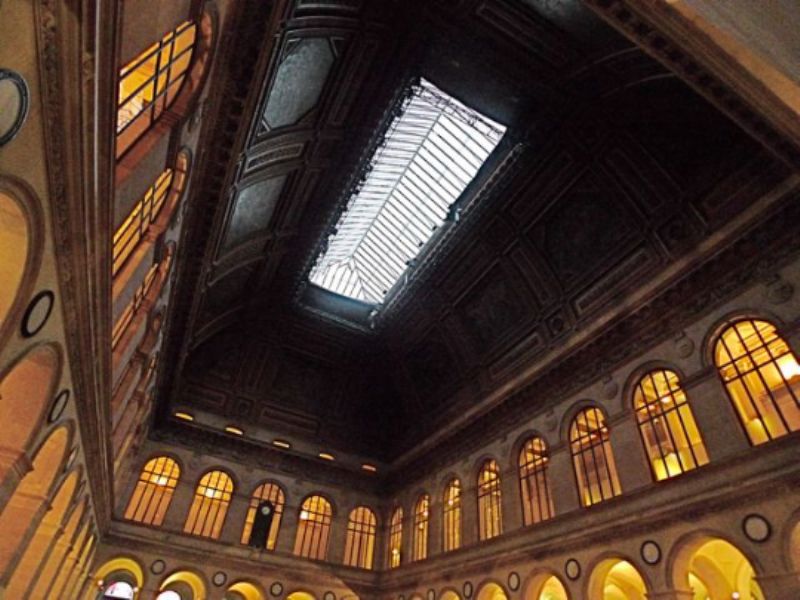 Part of the old open cry trading floor area
Part of the old open cry trading floor area 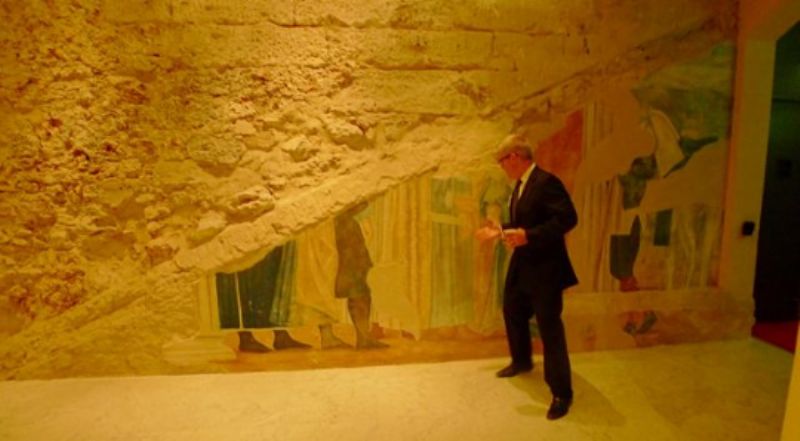 Jay Whitehead points out piece of old Roman city wall
Jay Whitehead points out piece of old Roman city wall 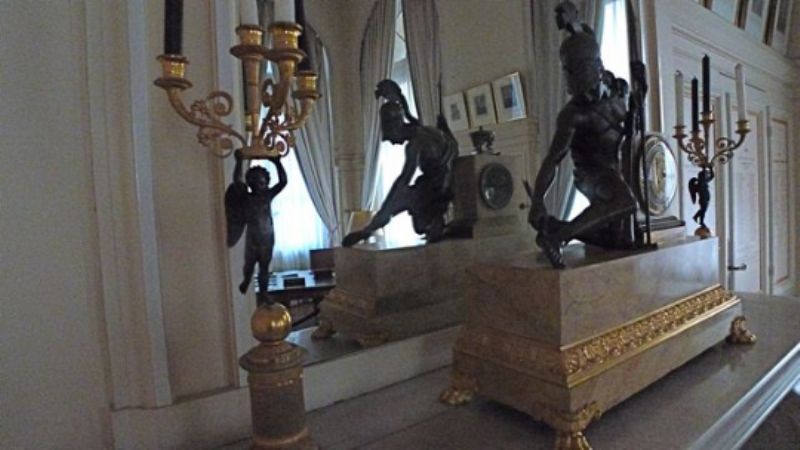 Mirrored
Mirrored  Mirrored by the ceiling
Mirrored by the ceiling 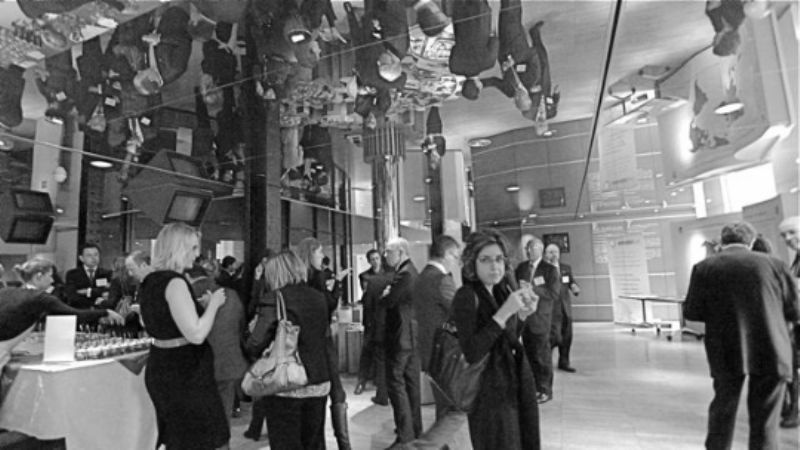 Ditto
Ditto 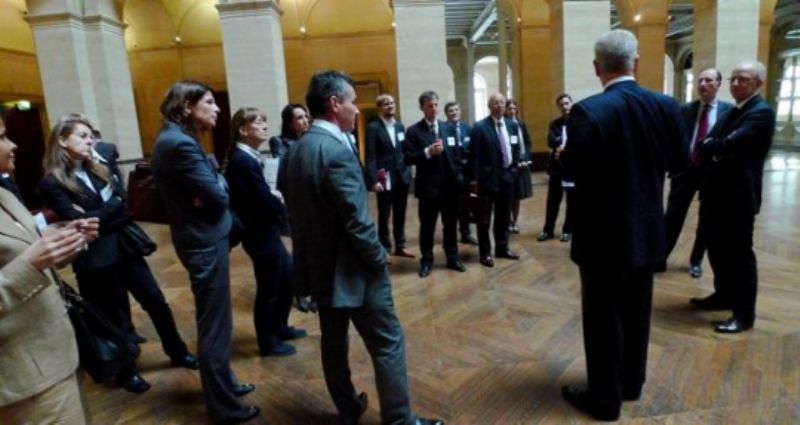 Later, Jay gives the guided tour again
Later, Jay gives the guided tour again
Across to Paris, City of Lights (and contrasts), via the Eurostar late last night, to speak at the first CRO Summit in Europe. Bit of a struggle to find my way into the Palais de la Bourse, but when I finally broke in, I was given my own guided tour by Jay Whitehead – taking in the old open cry trading area and the section of old Roman city wall in the main conference theatre. Extraordinary the imagine all those hundreds of traders in full cry, with a huge heap of sand somewhere on the floor, in which they stubbed out their cigars.
Met a whole bunch of people who are potentially going to be helpful for the new book I’m now planning. Chaired a session with Bouwe Taverne (Director of Sustainable Development at Rabobank), Manlio Valdes (President, EMEIA, Climate Solutions, at Ingersoll Rand) and Gabi Zedlmayer, VP of Global Social Innovation at HP).
In conversation with Manlio and Dirk Olin, Editor of CR Magazine and one of the other moderators for the day, we were discussing how the agenda is becoming ever-more complex for business. I mentioned that I had sometimes suggested that it was sometimes akin to C-Suite folk being put on LSD, noting that I knew of what I spake.
Dirk raced off to get a copy of the latest issue of the magazine, where his editorial is called ‘Tripping Over Work’. It starts with Timothy Leary’s six word mantra: Tune in, turn on, drop out. And the basic idea is that, while users of hallucinogens in the Sixties sometimes became paranoid or depressive, people kept in the dark by business can also suffer a form of sensory deprivation – very much akin to being put into a sensory privation tank.
Dirk quotes a study reported in the October 2009 issue of the Journal of Nervous and Mental Disease which found that many people isolated for as little as 15 minutes from normal sensory stimuli results in what is called “faulty source monitoring” – in which we assume that what is going on in our own heads is coming from the outside. Companies run the risk that their stakeholders will do the same, assume the worst and “drop out”.
Streets of city wreathed in refuse, presumably a result of the ongoing strikes and mass protests. Also more people sleeping in the streets than I remember, which was a striking contrast with the luxurious surroundings of the Palais de la Bourse. And with the meal I had at Brasserie 1925, cheek-by-jowl with Gare du Nord, as I waited for my Eurostar later in the day.

Leave a Reply